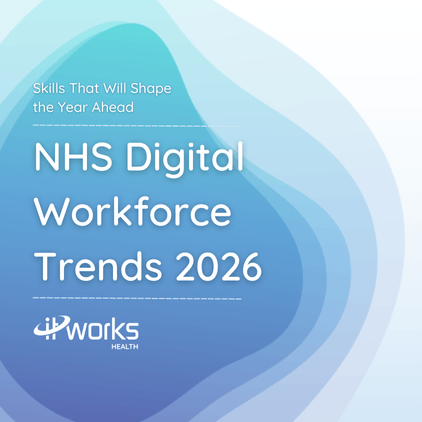I recently sat down with Ray Jordan - a seasoned digital health leader with a diverse career spanning IBM, entrepreneurial ventures, and NHS transformation programmes - to discuss the evolving role of data platforms and AI in the NHS.
Ray’s journey into healthcare began through his work on personalising patient care. His experience bridges technical expertise, enterprise architecture, and on-the-ground implementation, giving him a unique lens on the challenges and opportunities of digital transformation in health.
Federated Data Platform: A Turning Point
At the heart of the NHS’s digital push is the Federated Data Platform (FDP), a nationwide architecture designed to unify health data while enabling local flexibility. Ray sees FDP as a critical enabler of the NHS’s 10-Year Plan, which pivots towards prevention, digital transformation, and reducing health inequalities.
Despite some early controversy around suppliers and data security, FDP is now in active use across 45 trusts, with NHS England mandating full adoption by 2026. Ray draws parallels with the swift rollout of Microsoft Teams during the pandemic, pointing out that large-scale adoption tends to gain traction once direction is firmly set. The FDP’s real-time tracking and population health analytics capabilities are already delivering value in areas like diabetes, cancer, and mental health.
AI in Healthcare: Promise with Caution
Ray is pragmatic about the NHS’s embrace of artificial intelligence. AI, he notes, is the current buzzword in tech, yet its healthcare application demands nuance. The key lies in assessing tools by evidence and risk. Radiology and dermatology (such as NICE-backed skin cancer detection tools) are proving safe, high-value applications.
Crucially, Ray argues that AI must be designed in, not bolted on. This echoes lessons learned from cybersecurity; good outcomes come when tools are part of the foundation, not an afterthought.
The NHS is already seeing promising use cases. Oxford University Hospitals NHS Trust, for instance, is leveraging Microsoft’s Co-Pilot, built on ChatGPT technology, to automate meeting summaries, streamline email management, and boost collaboration via Teams. Return on investment is measurable, clinicians and staff are saving one to four hours per week, time which can be redirected to patient care.
The Human Factor
Ray is clear that technology alone won’t deliver transformation. The critical success factors are people and processes. Implementing AI and data platforms requires navigating internal politics, unifying fragmented systems, and above all, supporting culture change.
He believes the real opportunity lies in helping NHS organisations build capability; bridging gaps in digital skills, embedding new tools in daily workflows, and inspiring teams to engage with change from the ground up.
Final Thoughts
The NHS stands at a digital crossroads. Platforms like FDP and AI tools such as Co-Pilot aren’t just new tech; they’re levers for system-wide change. But, as Ray Jordan reminds us, success won’t come from the software itself. It will come from how well we support the people using it.
Special thanks to Ray for his time and valuable insights, you can watch the full conversation on YouTube:



